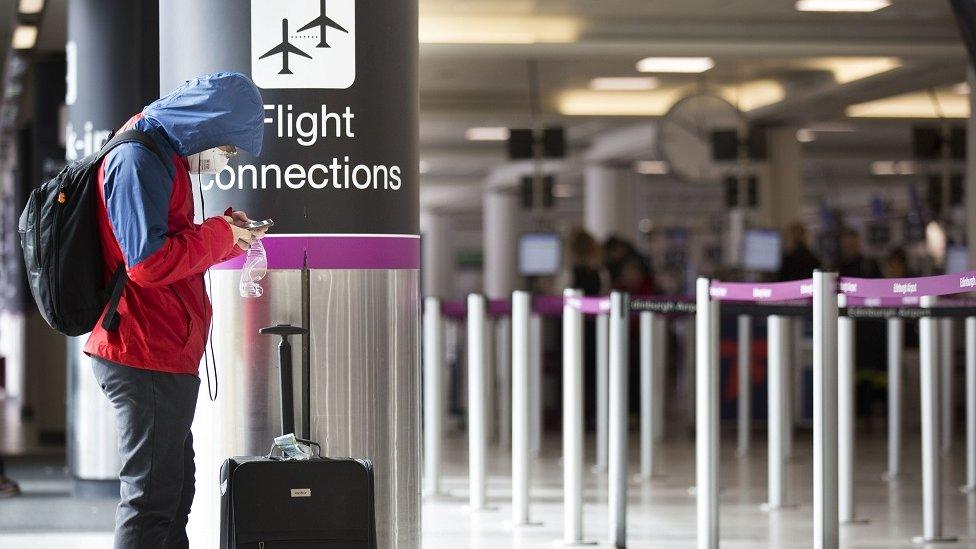Coronavirus: Airports 'at risk' of closure as flights drop 90%
- Published
- comments
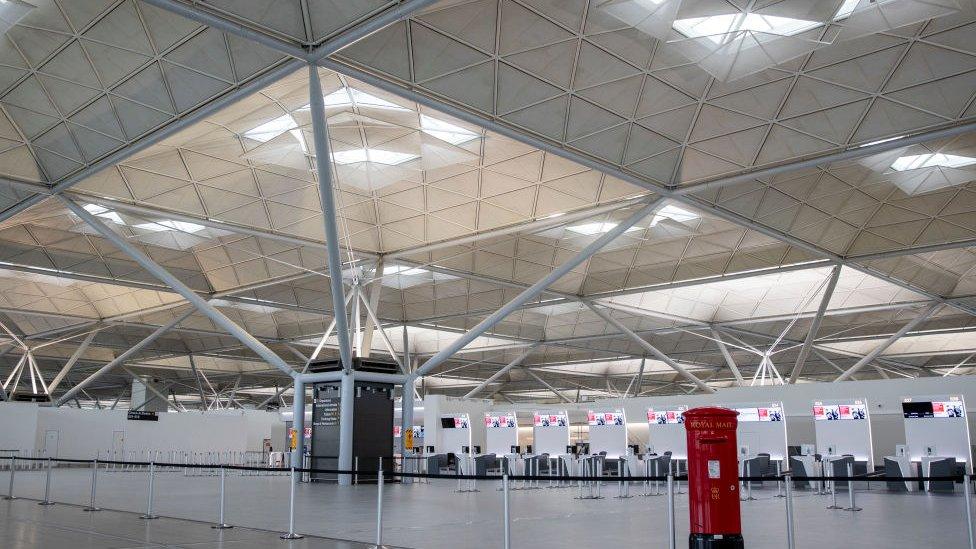
Check-in desks at Stansted Airport are deserted and there are only a few flights a day, mainly for freight
Some airports are "at risk" of closure because of the loss of business during the coronavirus pandemic, experts have warned.
Nine out of 10 flights have been grounded since the UK went into lockdown.
Airports said cargo flights were running and shareholders were being supportive as they worked to cut costs.
Flight tracking website Flightradar24, external recorded just 711 departures from the UK's 10 biggest airports last week.
This compares with 7,865 in the week up to the UK's lockdown.
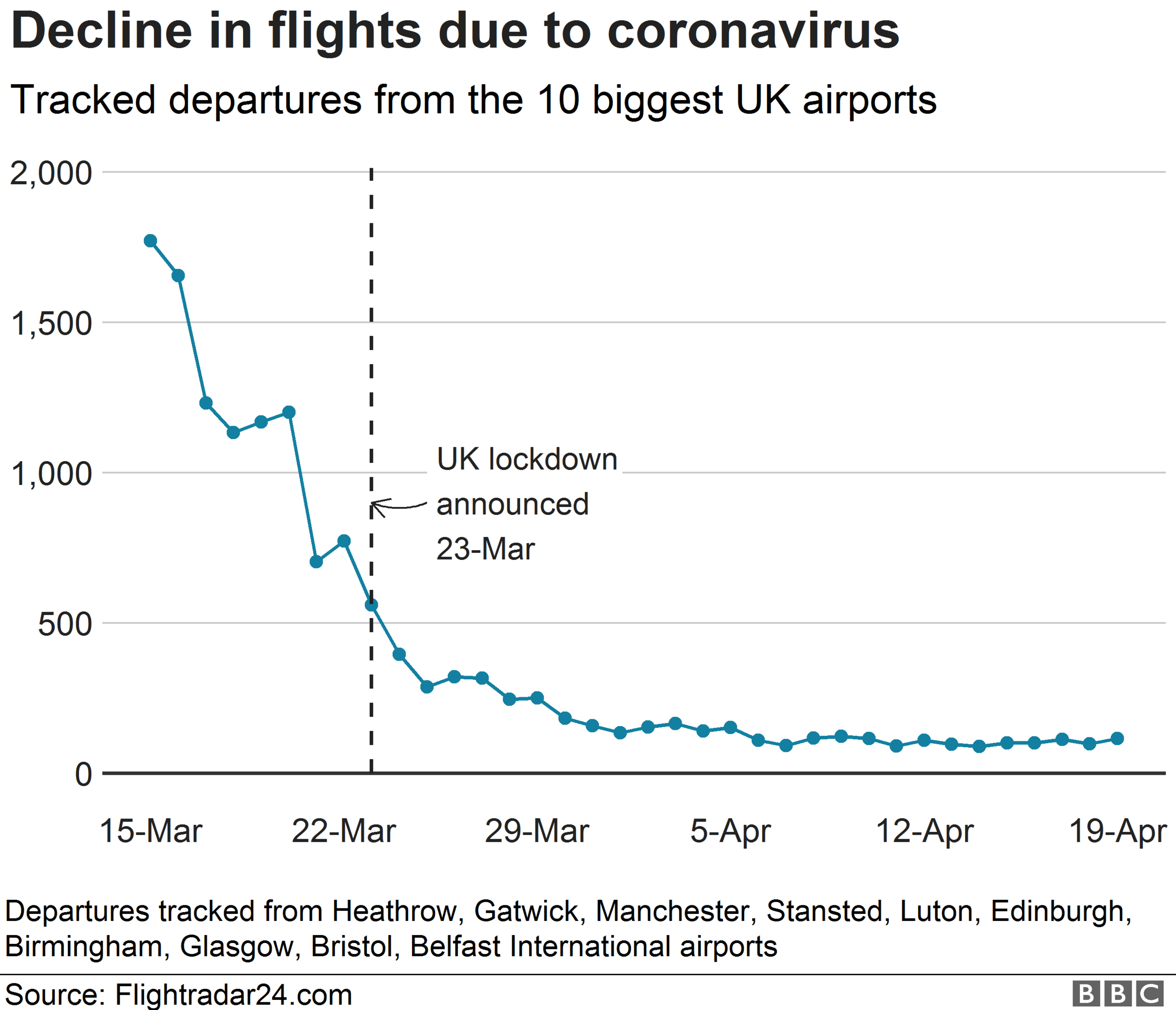
Could airports close?
Independent aviation analyst Martin Evans said there was a "risk" some airports would fold.
"Regional airports, just before the lockdown, were hit by the administration of Flybe," he said. "So they had already lost a substantial amount of income.
"Now is the start of the period when they should be getting maximum revenue. If things return to normal by winter, that's the point they are at their quietest.
"There is a risk that we could see airports close. That could mean an airport company folds but that the buildings and facilities are still there and someone else would take over, but there is a risk at the moment."
He said airports would still have to cover fixed costs - ranging from management to air traffic control - whether there were flights or not.
Julian Bray, an aviation expert and broadcaster, said some grounded aircraft may "never return to the skies".
He said systems would need to be thoroughly serviced before they could fly again.
Mr Bray added: "We will see some smaller airports go to the wall unless a rescue deal can be arranged."
He said he expected passenger numbers to be low even when restrictions were lifted as people choose not to travel.
"Some are getting one or two departures a day, but it is pretty bleak at the moment."
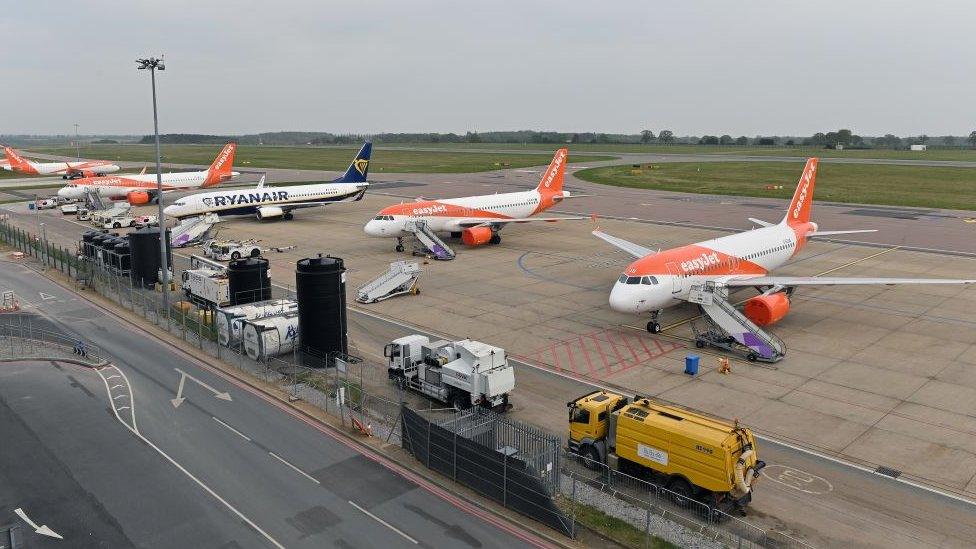
EasyJet has grounded planes at airports like Luton
EasyJet said it expected a pre-tax loss of between £185m and £205m for the six months to 31 March, although this would mark an improvement after a £275m loss in the same period a year earlier.
It has said it is likely to keep its middle seats empty once flights resume to maintain social distancing triggered by the pandemic.

A SIMPLE GUIDE: How do I protect myself?
AVOIDING CONTACT: The rules on self-isolation and exercise
HOPE AND LOSS: Your coronavirus stories
LOOK-UP TOOL: Check cases in your area

What are airports doing instead?
Heathrow Airport would normally see an average of 1,400 take-offs and landings per day.
In the week before the UK went into lockdown 2,432 flights were tracked departing the airport by Flightradar24 while last week there were just 464.
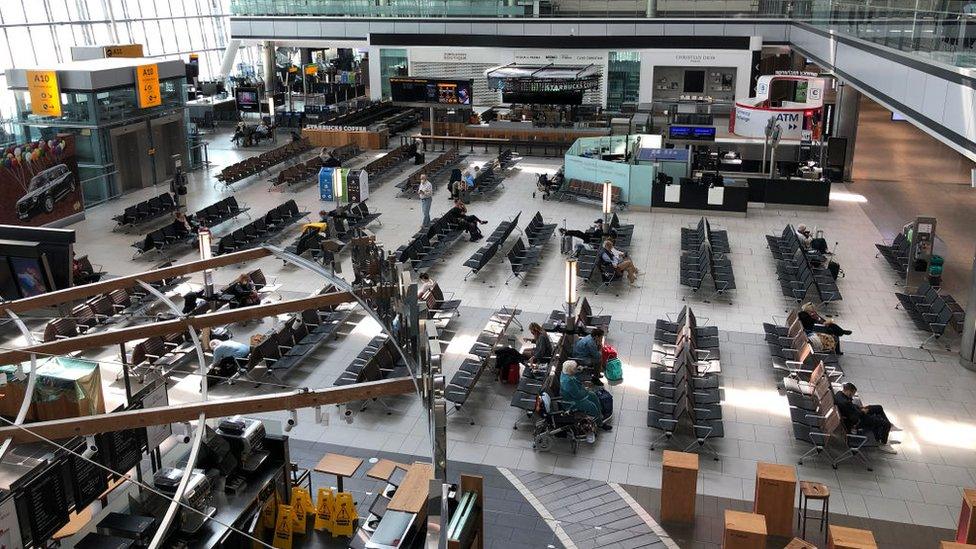
The departure lounge at Heathrow's Terminal 5 is almost empty
For some airports, almost all passenger flights have stopped.
A spokeswoman for Birmingham Airport said traffic was down 90%.
"Birmingham Airport remains open to support any airlines that need to carry out aircraft maintenance checks, emergency flights and cargo, and we will continue to remain open for any airlines which need to use Birmingham as an arrival or departure point," she said.
"We are following government advice regarding social distancing to safeguard our employees and customers. "
She said remaining passenger flights included repatriation services arriving from Pakistan plus some services to Dublin and Amsterdam.

Birmingham Airport's grounds team cut the taxiway grass to show their appreciation to the NHS
One of the airport's hangars is being used for a temporary mortuary with space for about 1,500 bodies and the site is also close to the West Midlands' new Nightingale hospital at the NEC.
A spokesman for Manchester Airports Group, which runs Manchester, Stansted and East Midlands airports, said: "Every airport in the UK has seen an unforeseen, rapid and significant reduction in passenger numbers.
"MAG has already acted quickly to protect jobs and secure its long term future by cutting costs across the group. MAG faces into this crisis in a strong and prudent financial position, with supportive shareholders."
He said East Midlands Airport was currently one of the top 10 busiest airports in Europe by flight numbers because of its cargo operation, with volumes "as high as they would be in a normal month" but passenger numbers down "very significantly on normal levels".
Newcastle Airport has limited its hours of operation and currently has one commercial flight per day, four days a week, operating between Newcastle and Amsterdam as well as one-off military, freight and medical flights.
"We welcome the measures taken so far by the government to support businesses, external through this difficult time but hope there will be further help provided," a spokeswoman said.
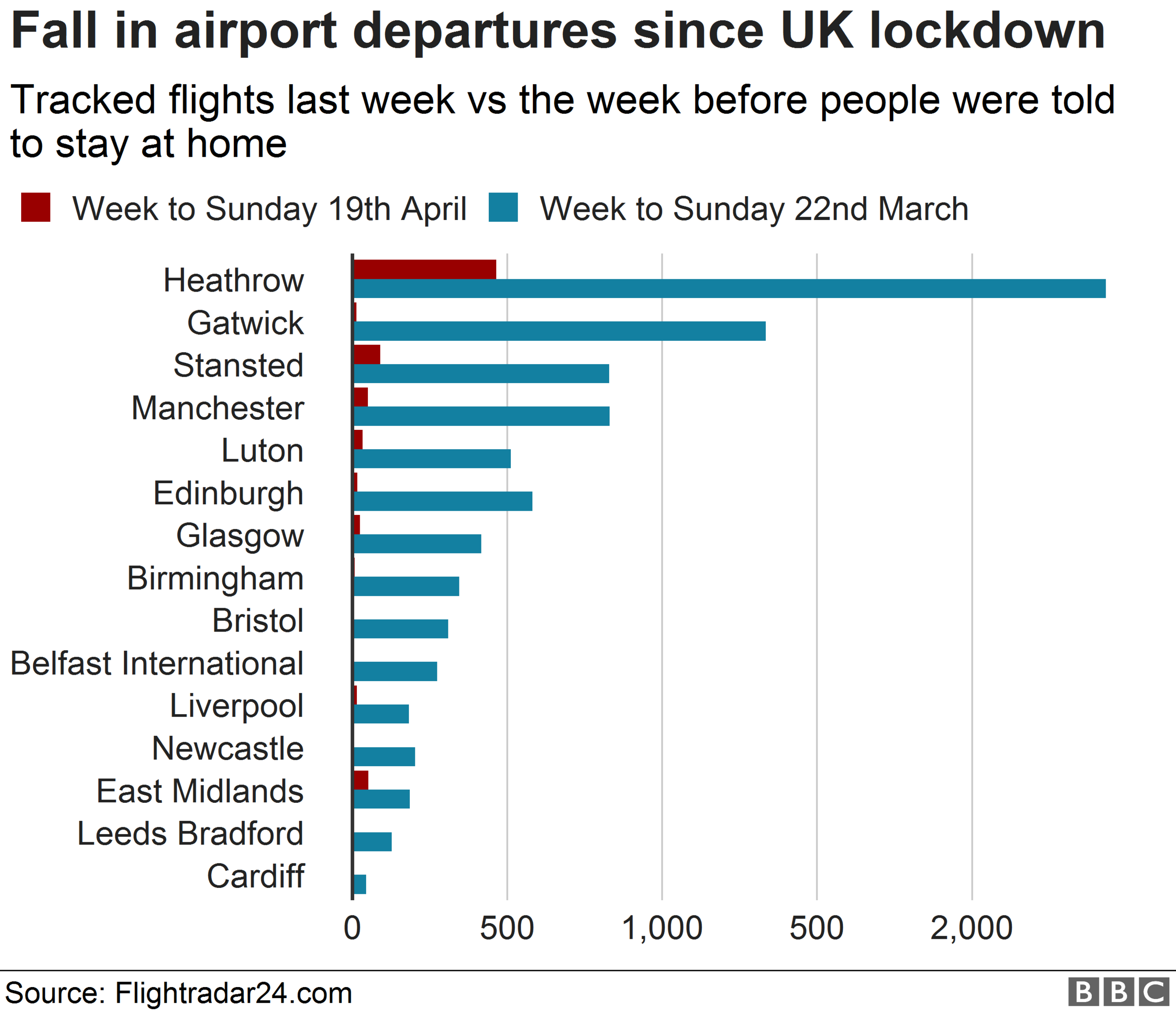
At Belfast International, there have been no passenger flights since EasyJet grounded services in March.
A spokeswoman said the airport remained open and "appropriately staffed".
"Passenger flights are effectively limited to round-the-clock medical emergency flights," she said.
"Our extensive lifeline nightly cargo operations continue to provide the vital supplies required by the core health and food chain sectors throughout this most challenging of times."
Medical flights include passengers who need to go to Great Britain for treatment, not related to coronavirus, while cargo flights go mainly to the East Midlands and Stansted airports and include Royal Mail services.
Bristol Airport is "assisting with repatriation, medical, military and other essential movements," a spokeswoman said.
What's the effect on local jobs?
The Centre for Cities think tank estimates one in five jobs in areas that depend on the aviation industry are vulnerable to the economic impacts of Covid-19.
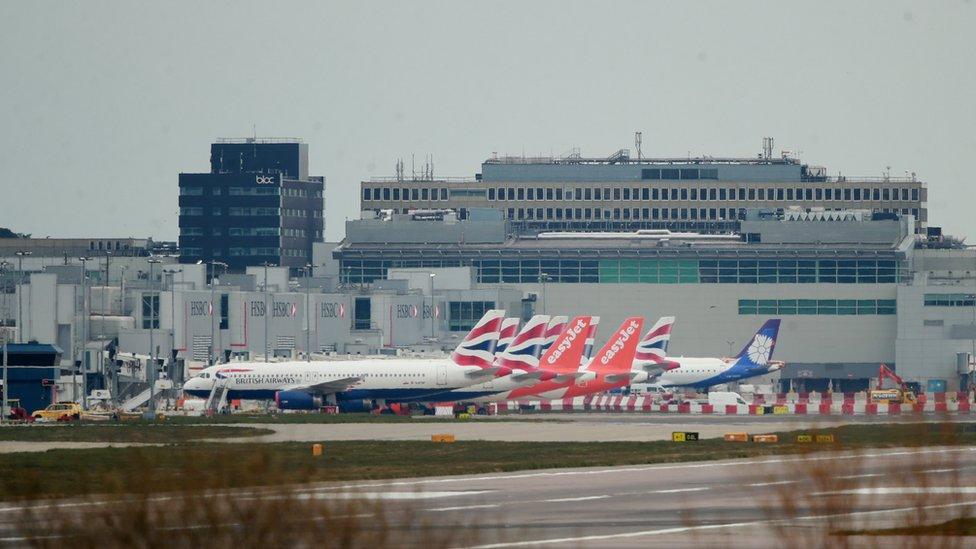
Planes have been grounded at Gatwick due to the pandemic
The economy of Crawley, near Gatwick airport, is likely to be hardest hit, the report states.
The town has a large share of employees working in the aviation and aircraft manufacturing industries.
- Published17 April 2020
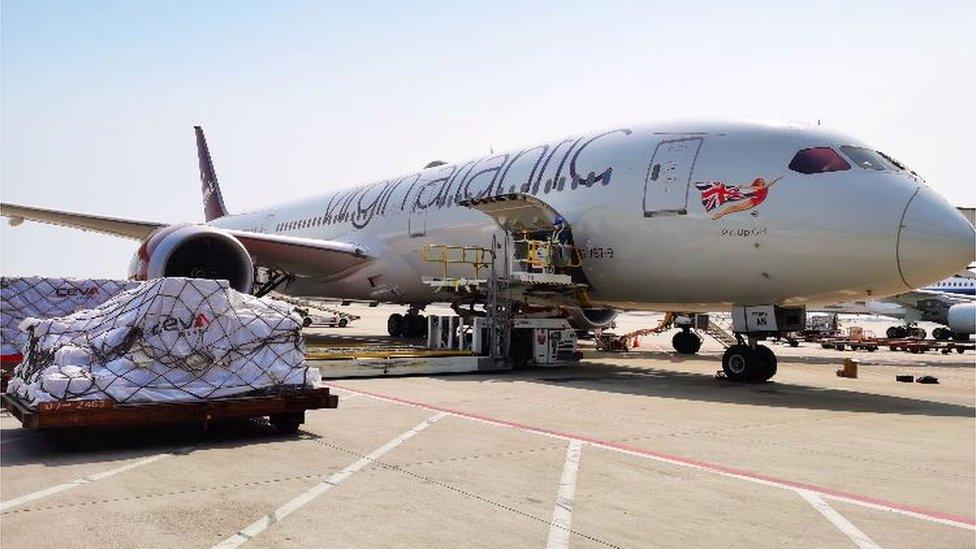
- Published16 April 2020
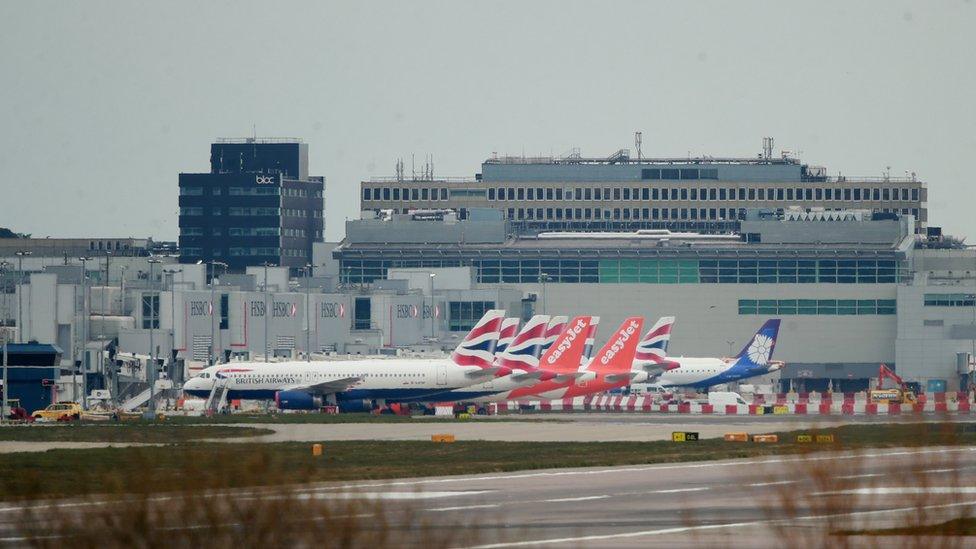
- Published16 April 2020
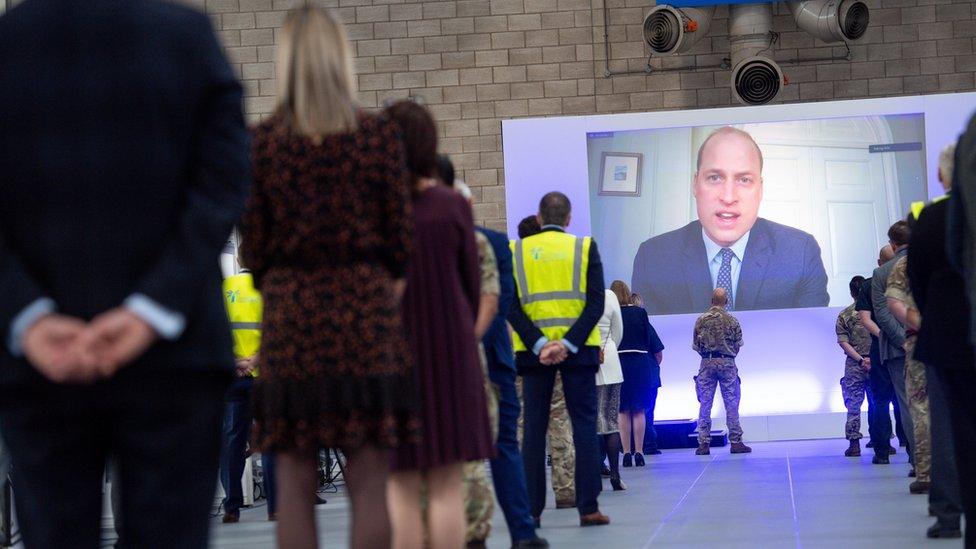
- Published1 April 2020
